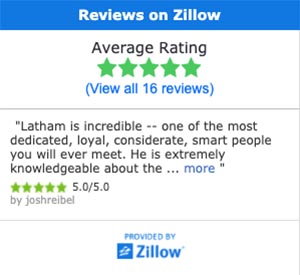By: Long Reimer Winegar Beppler LLP
With its scenic location at the base of the Jackson Hole Mountain Resort and proximity to Grand Teton National Park, Teton Village provides an excellent location in which to purchase a condominium investment. In addition to the state’s celebrated lack of income tax and low property tax, investors must nonetheless take federal tax considerations into account, just as they would with any other real estate purchase. This paper briefly describes such general tax considerations, although specific issues and facts may require consultation with qualified counsel.
1. Generally
A condo owner takes title to the air space of the condo unit, as well as an undivided interest in the condo’s common elements.[1] Standard federal tax rules regarding rental income, capital gains, deductions, and depreciation will apply in the same manner as under more traditional form of separate property ownership.
2. Classification of Income
Federal law taxes rental income as ordinary income.[2] If an investor holds the property as an investment (rather than as part of active trade or business selling property) for at least one year, the proceeds of subsequent resale or exchange will be subject to favorable long-term capital gains treatment.[3] Although beyond the scope of this paper, like-kind exchanges may provide a method of deferring capital gains from later disposition of the property.[4]
3. Depreciation
The value of a condo unit and its improvements will tend to decrease over time. If an investor holds the property to produce income, rather than for solely personal use, federal law compensates for the erosion of this investment by permitting an annual depreciation deduction over a 27.5-year period beginning when the property is ready and available for rent.[5]
Unlike repairs,[6] the cost of permanent improvements, restoration, and adaptation of a property to new use tend to increase the property’s value. The cost of such improvements must therefore be depreciated over 27.5 years, rather than claimed as an immediate deduction from rental income.[7] Common examples of such improvements include adding a deck or garage and replacing windows, the roof, an HVAC system, or wall-to-wall carpeting. In general, each improvement may be depreciated as a separate piece of property. Investors should keep careful records separating the costs of repairs and improvements, which will be needed when the investor depreciates the improvements or sells the property.
Special rules apply if the unit is used for both profit and personal purposes. For example, if the investor rents the unit to tourists during skiing season, but uses it as a personal vacation residence during the off-season, depreciation will be limited to the part of the year when the property is held for income purposes.

Granite Ridge, Teton Village

Granite Ridge, Teton Village
4. Deductible Expenses
Several expenses incurred in preparing and renting a condo unit can be claimed as deductions, reducing taxable income.[8] They can be divided into three categories based on whether the expenses are incurred as part of (1) an active trade or business, (2) for-profit activity, or (3) other activity.
A. Specific Deductions
1. Trade and Business Deductions
Federal law generally permits a full deduction against taxable income for expenses incurred in carrying on an active trade or business.[9] These deductions may be unavailable to the typical investor who rents condos to tenants, but does not provide substantial services as part of a trade or business.
2. For-Profit Activity Deductions
For-profit activities tend to provide the most important category of deductible expenses attributable to a rental property investment. Federal law allows someone to deduct expenses incurred for the production or collection of income or the management or maintenance of property held for the production of income.[10] Such deductions have taken on new importance with the imposition of the 3.8% Medicare tax on net annual investment income exceeding $200,000 ($250,000 for married couples).[11]
Specific for-profit activity expense deductions include the following:
- Maintenance and Operating Expenses. Expenses incurred to produce or collect income or to manage, conserve, or maintain property held to produce income, such as a rental condo, can be deducted from rental income.[12] These deductions can be claimed in the year when the condo is made available for rent, even if the investor formerly used the property as a personal residence.[13] Such expenses may include payments to a condo management association, fees of independent contractors (e.g. groundskeepers), repair costs (i.e. expenses that keep the property in good working condition, but do not add to its value, such as fixing gutters or replacing roof singles), and rentals of maintenance equipment (but not purchases, which generally must be depreciated).[14] Note: As explained above, permanent improvements must generally be depreciated as capital expenses over a number of years.
- Interest paid or accrued on debts to purchase property held for investment purposes, rather than as part of a trade or business, during the tax year, is generally fully deductible against the unit’s rental income and other net income produced by investments during that year.[15] These expenses cannot be deducted from noninvestment income, but may be carried forward and deducted from net investment income in subsequent years.[16]
- Travel Expenses. An investor may deduct ordinary, necessary, and reasonable overnight travel expenses if the primary purpose of a trip is to collect rental income or to manage, conserve, or maintain rental property. Allowable travel expenses may include airfare, lodging, meals, and laundry costs.[17] Expenses of transportation between income-production properties are also deductible. The IRS imposes special recordkeeping requirements on taxpayers who deduct travel expenses.[18]
- An investor may deduct premiums on insurance policies protecting from losses to investment property,[19] but not if the asset is transferable or refundable or during a period of construction.[20]
- Unless compensated, such as by insurance, certain losses from a transaction entered into for profit are deductible.[21] Note: Unless the investor is a real estate professional, passive losses are generally limited to offsetting income from other passive activities.
- Other Expenses. Other potential deductions include the following reasonable expenses paid or incurred in connection with the production or collection of income or holding property for the production of income: legal fees, professional investment advice, professional tax advice and return preparation, appraisal fees, advertising, accounting, actuarial fees, and litigation fees and costs.
Note: If the investor uses any part of the property for personal purposes, expenses must be divided between rental and personal use and may be subject to other limitations.
3. Non-Trade, Business, and For-Profit Activity Deductions
Some expenses are deductible, regardless of whether they are incurred as part of a trade, a business, or for-profit activity:
- Property Taxes. As the owner of title to Wyoming real property, each separate condo owner will be separately assessed state and local property tax based on the assessed value of his or her interest.[22] Such taxes may be claimed as a deduction against rental income.[23]
- Casualty Losses. Losses directly attributable to a sudden, unexpected, or unusual cause, such as damage caused by a fire, tornado, hurricane, vandalism, etc., can be deducted regardless of whether they were incurred in connection with a trade, business, or for-profit activity.[24] Losses excluded from this category include faulty construction damage, preventive maintenance costs, temporary problems, dry rot damage, and reductions in value caused by government property use regulations. Casualty losses are unavailable if the loss was covered by insurance and the taxpayer failed to file a timely claim.[25]
- Mortgage Interest. The general rule forbids non-corporate taxpayers from deducting personal interest.[26] However, several deductions are available, including for investment interest[27] and qualified residence interest.[28]
B. Home Business Expense Rules
Federal law limits otherwise available deductions (other than those available without regard to rental activity, such as those for qualified residence interest, property taxes, and casualty losses) based on the investor’s personal use of a dwelling unit:
- If the investor makes no personal use of the unit, these rules do not apply and deductions are permitted to the extent otherwise allowed by federal law.
- If the investor makes personal use of the unit not exceeding the greater of 14 days or 10% of the days when the unit is rented at fair rental value, then the unit is not classified as a “residence”[29] and the investor may take deductions in proportion to the part of the year for which the property is rented at fair rental value.[30]
- If the investor makes personal use of the unit exceeding the greater of 14 days or 10% of the days when the unit is rented at fair rental value, then the unit is classified as a “residence.”[31] The investor may take deductions in proportion to the part of the year for which the property is rented at fair rental value, subject to gross rental income limitations.
- If the investor rents the unit for fewer than 15 days and makes personal use of the unit for the greater of 14 days or 10% of the days when the unit is rented at fair rental, the unit’s rental income is excluded from the taxpayer’s gross income and rental deductions are disallowed.[32]
5. Tax Credits
Congress periodically makes tax credits available to taxpayers based on how they use and maintain their property. Although availability may change based on frequent amendments to the tax code and the year the property was placed in service, potential credits include the following:
- Rehabilitation credit for expenditures of seller.[33]
- Energy credits, such as the residential energy efficient property credit[34] and the residential energy property credit.[35] If a management association makes efficiency improvements, the credit may be available to unit owners on a proportional basis.
6. Conclusion
As you can see, federal tax rules regarding income, gains, losses, depreciation, deductions, and credits can be complex. Applying these rules to specific situations requires a careful examination of the facts and an informed judgment. It is therefore advisable to consult a qualified tax attorney before making a decision regarding whether to invest in Teton Village condominiums.
About Long Reimer Winegar Beppler LLP
At LRWB, we offer the expertise and sophistication of a national law firm with the service and responsiveness of a boutique firm. Our approach is simple—our clients receive hands-on attention and the practical expertise of experienced lawyers who place a premium on delivering the highest quality legal advice in the most efficient and cost-effective manner as possible. Our lawyers are committed to excellence, creating long-standing personal relationships, accessibility, integrity, and providing pragmatic solutions to difficult problems. We take pride in the close relationships that we develop with our clients and playing an integral role as strategic partners in helping them reach their goals and providing solutions to problems. This approach has made LRWB stand out among contemporary law firms.
LRWB represents Rocky Mountain West region, national and international based clients in matters related to estate planning, tax, business planning, probate and trust administration, civil litigation, real estate and land use, situs planning, oil and gas and natural resources, elder law, family law, health law, international law, sports and entertainment, alternative dispute resolution, bankruptcy and creditor–debtor law, and asset protection.
The materials in this brochure are provided for information purposes only. They do not constitute legal advice. You should not act or rely on any information in this brochure without seeking the advice of an attorney. Copyright Long Reimer Winegar Beppler LLP, all rights reserved.
[1] W.S. § 34-20-102.
[2] 26 U.S.C. § 61(a)(5).
[3] 26 U.S.C. §§ 1222(e), 1231.
[4] 26 U.S.C. § 1031.
[5] 26 U.S.C. § 168(c).
[6] If repairs are undertaken as part of an extensive remodel or restoration, the entire project is treated as a capital improvement.
[7] 26 C.F.R. § 1.263(a)-1(a), (d)(2).
[8] See 26 U.S.C. § 63.
[9] See 26 U.S.C. § 162.
[10] 26 U.S.C. § 212(1), (2).
[11] 26 U.S.C. § 1411.
[12] 26 U.S.C. § 212(2); 26 C.F.R. § 1.212-1.
[13] 26 C.F.R. § 1.212-1(h).
[14] See I.R.S. Publication 527, https://www.irs.gov/publications/p527/index.html.
[15] 26 U.S.C. § 163(d)(1).
[16] Rev. Rul. 95-16, 1995-1 C.B. 9.
[17] 26 C.F.R. § 1.162-2(a); Rev. Rul. 63-145, 1963-2 C.B. 86.
[18] I.R.S. Publication 463, ch. 5, https://www.irs.gov/pub/irs-pdf/p463.pdf.
[19] 26 U.S.C. § 212(2).
[20] 26 U.S.C. §§ 263, 263A.
[21] 26 U.S.C. § 165.
[22] See W.S. §§ 39-11-103(a)(i), 39-13-103.
[23] 26 U.S.C. § 164(a)(1).
[24] 26 U.S.C. § 165.
[25] 26 U.S.C. § 165(h)(4)(E).
[26] 26 U.S.C. § 163(h).
[27] 26 U.S.C. § 163(h)(2)(B).
[28] 26 U.S.C. § 163(h)(2)(D).
[29] 26 U.S.C. § 280A(d)(1).
[30] 26 U.S.C. § 280A(e).
[31] 26 U.S.C. § 280A(d)(1).
[32] 26 U.S.C. § 280A(g).
[33] 26 U.S.C. § 47.
[34] 26 U.S.C. § 1122.
[35] 26 U.S.C. § 1121.






